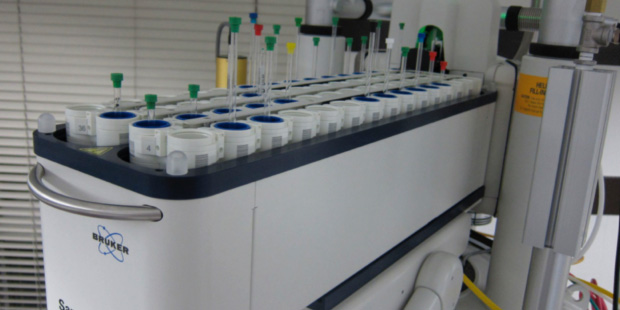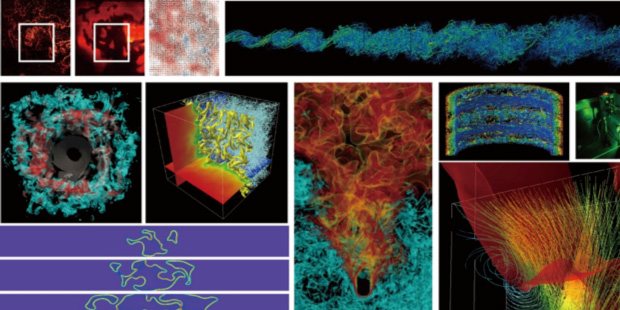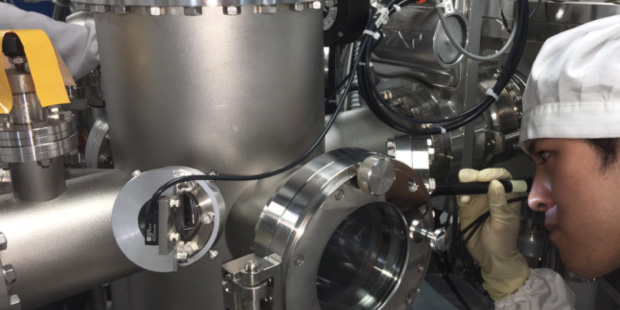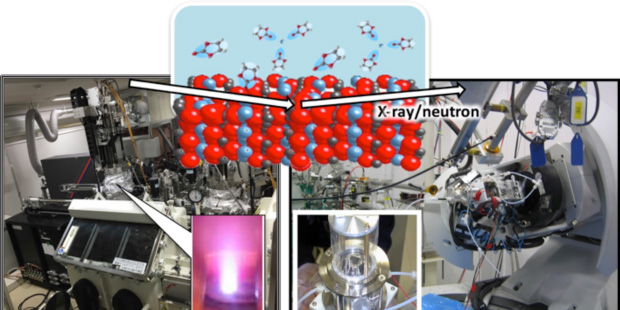Chemistry

In the Chemistry Energy Course, we will conduct cutting-edge chemical research while acquiring the expert knowledge and experimental skills necessary to understand substance-related phenomena at the atomic / molecular level. The surprise that the phenomenon that atoms and molecules weave is revealed at cutting edge equipment and the pleasure of the discovery that new materials created by themselves show new functions. While experiencing the impression of such chemistry, we will provide support to grow into human resources with a broad chemical perspective. In addition, we aim to contribute to the realization of a prosperous society including solving energy problems which humankind is faced with having the opportunity to think about energy problems from the standpoint of chemistry.
to TOPMechanical Engineering

In the mechanical engineering energy course, we acquire systematic expertise constituting the basic principles in mechanical engineering and extensive knowledge in the peripheral discipline field, and utilize these, further advance advanced research to innovate mechanical engineering for the development of society. Student's creative ability is promoted to solve problems from an international perspective, to have proposals and solutions to research tasks, to have leadership skills and practical skills, develop advanced science and technology, solve social problems, create new value. We will develop students who can return their research results to society.
to TOPElectrical Engineering

In electrical engineering energy course, a wide range of electrical and electronic engineering such as generation and control of large scale electric energy, information transmission system such as radio waves and communication, information processing / communication, circuit and signal processing as the foundation of computers, integrated circuits, electronic devices are included. Students study basic both academic subjects from fundament to applications. Basic academic ability, pioneering researchers, leading technical personnel, educators combine broad vision, creativity, originality, that can demonstrate comprehensive strength and adapt to the future breakthrough development. Our aim is to nurture human resources who can play an active part in relevant industries, research fields and education fields. In addition, we are focusing on nurturing human resources who can be active in administrative and consulting etc.
to TOPMaterials

"From resource and energy conservation for industry covering fields of metals, polymers and inorganic new materials"
To solve contemporary environmental and energy problems that require global efforts, it is important to nurture talented global leaders who can take leaders with a bird's-eye view that overlooks the whole picture. It's mission. In the materials energy course industrial activities are supported by a wide variety of materials, and material science and material engineering are closely related to all kinds of science and technology and industry. Those who control the material can change the world better. By catching metal, organic and inorganic materials as a triple, we can deal with energy-related materials applications in a wide temperature range from cryogenic temperatures to ultra high temperatures, depending on the diversity of their respective atomic bonding modes. Even if only energy conversion materials related to power generation are considered, it can be diversified. Solar cells and thermoelectric materials that generate electricity from the electronic structure, dye-sensitized solar cells and fuel cells that generate electricity using chemical reactions are materials for direct conversion. Piezoelectric elements and shape memory alloys that are essential to actuators, turbines for turning with combustion gases and steam, heat resistant alloys and ceramics that make up the engine can be said to be materials for indirect conversion. When looking at peripheral materials such as catalysts and various electronic devices, there is no room for enumeration. Let's challenge and develop materials and related knowledge together.
Applied Chemistry

In the Applied Chemistry Energy Course, we aim to acquire advanced expert knowledge and logical thinking skills as well as foster talented students who challenge the power of chemistry for the environment and energy for society . For example, by practicing specialized technologies of applied chemistry, such as development of new chemical reactions and creation of functional materials, we can contribute to energy saving society and advanced energy device development. We have prepared advanced curriculm that emphasizes cooperation among industry, government, academia and academia, based upon the lecture theory group on energy, abundant special subjects, and interactions with independent scientists and engineers who can demonstrate leadership internationally.
to TOPTransdiciplinary Science and Engineering

In the Transdicipilinary Science and Engineering energy course (called Yugo in Japanese meaning "Fusion"), we utilize knowledge of science and engineering to solve the complex problems for society that open up a new horizons. As fields of expertise related to energy become deeper, the importance of understanding energy from a bird's-eye view and finding solutions with knowledge of sociology and economics will become more important especially in Asia, India and the Middle East, where the world's economic growth is concentrated. The energy field is changing and with it social structures change as well that need broad understanding and insight. We welcome students who seeks to understand energy broadly and undertake research that overlaps various fields such as science, engineering, energy policy and economics to make tomorrow's society safer, more resilent and sustainable.
to TOP